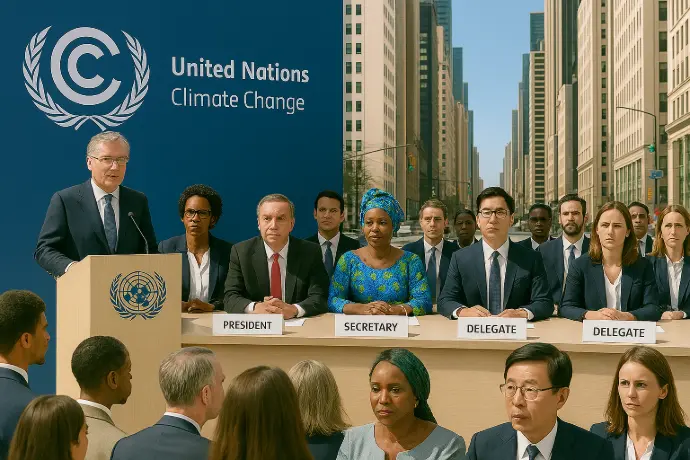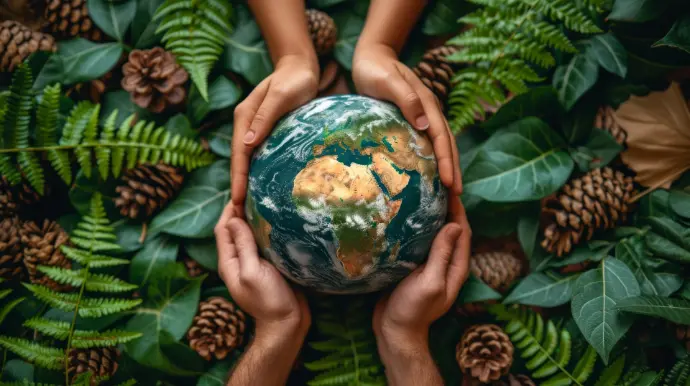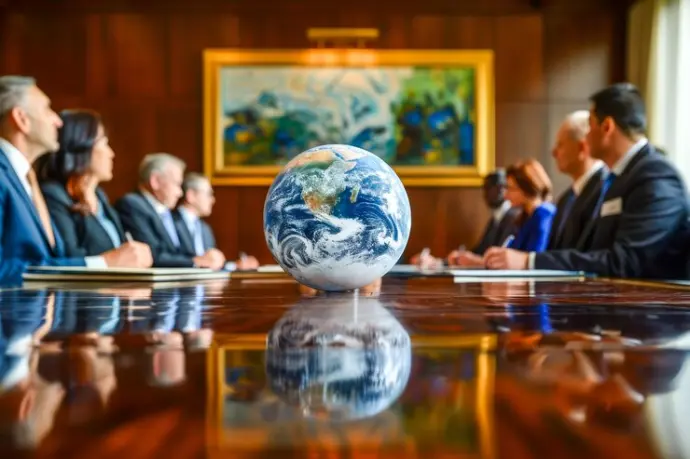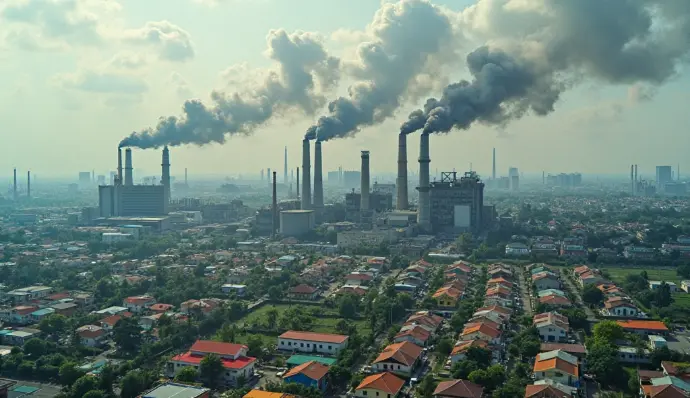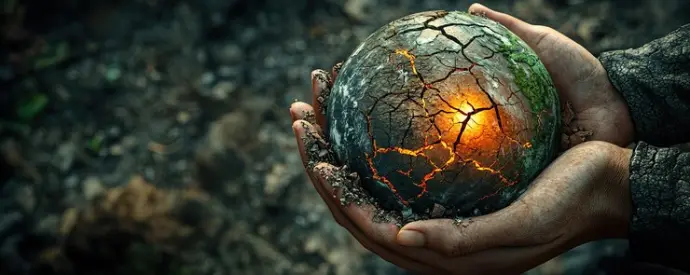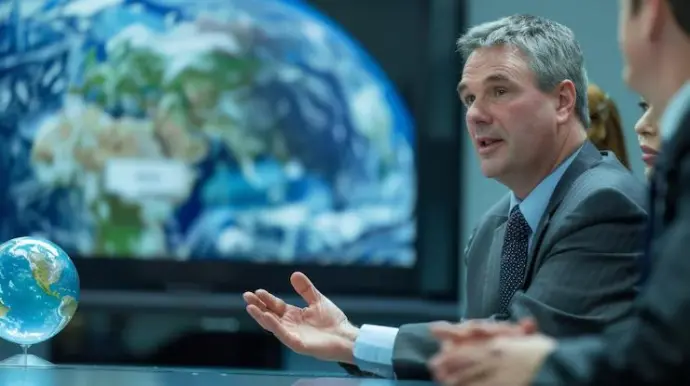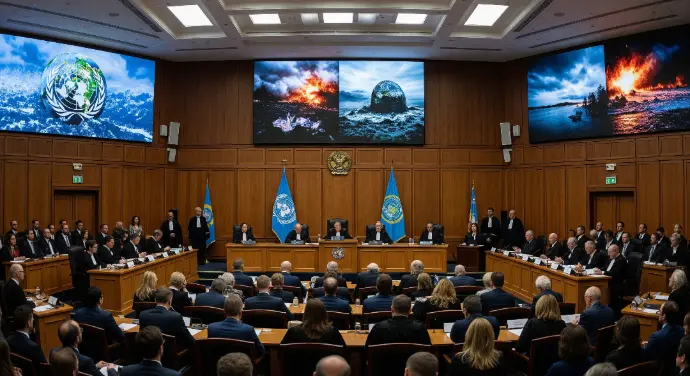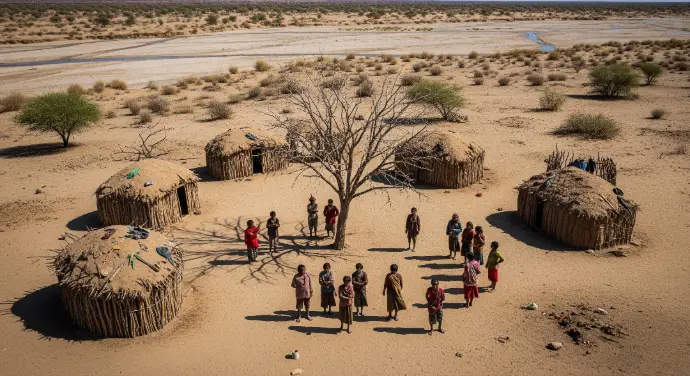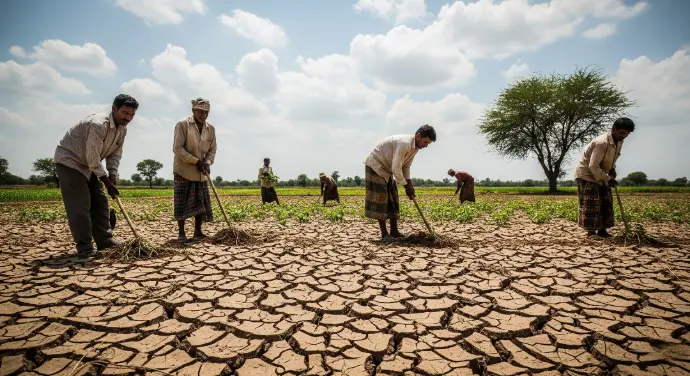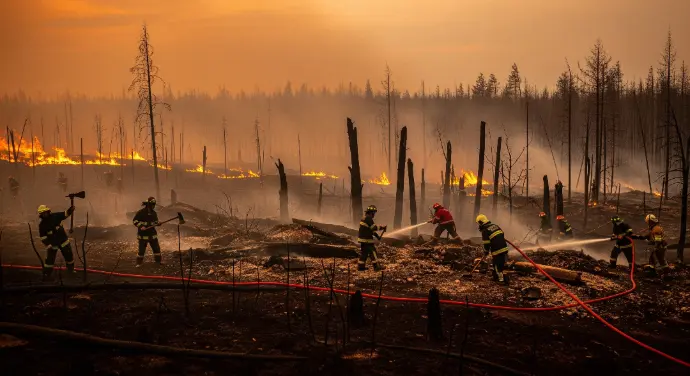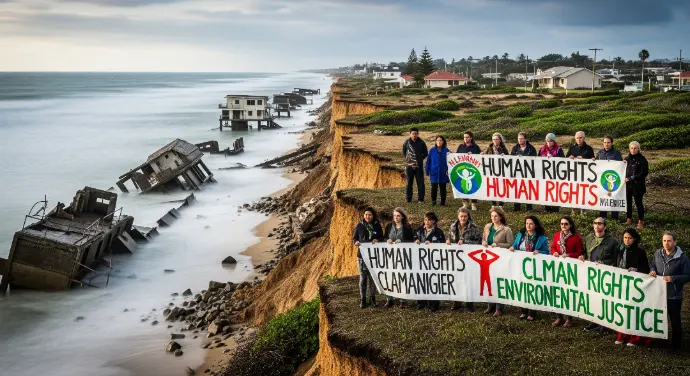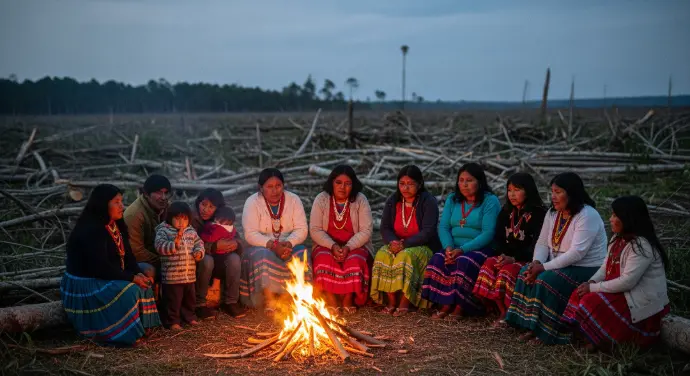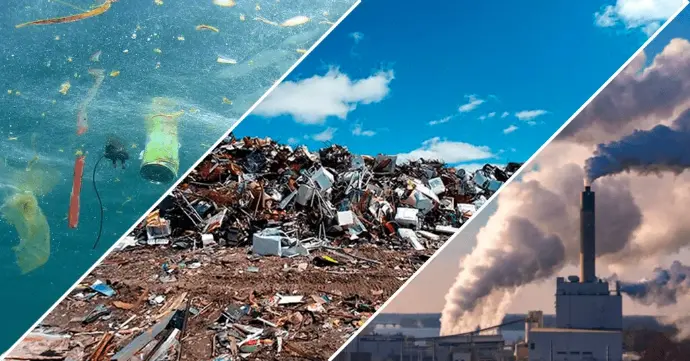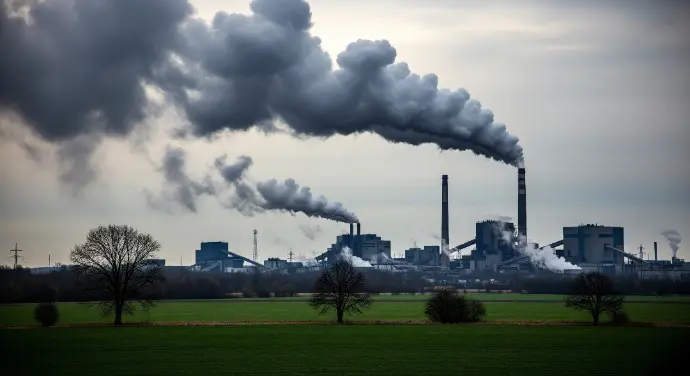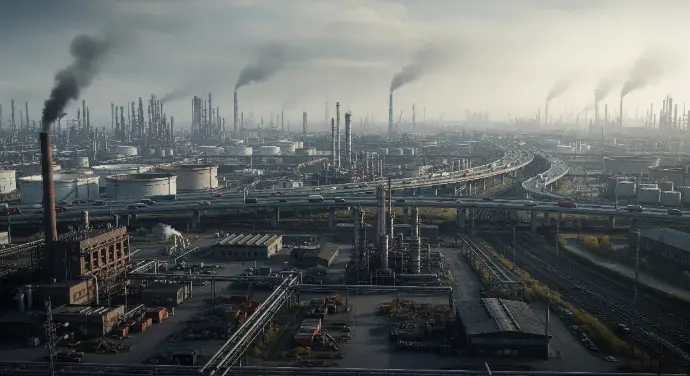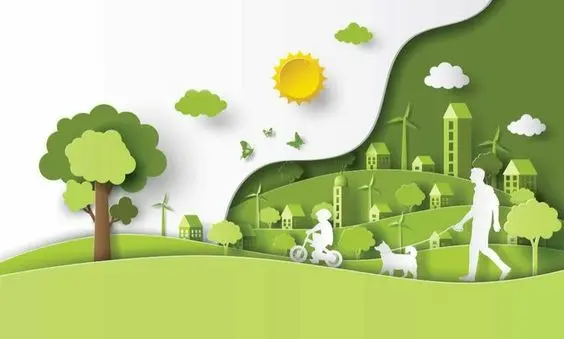Human rights and the Environment
All human beings depend on the environment in which they live. A safe, clean, healthy and sustainable environment is essential for the full enjoyment of a wide range of human rights, including the right to life, health, food, water and sanitation.
In the absence of a healthy environment, we are unable to realize our aspirations. And perhaps we will not even be able to access the minimum criteria of human dignity. All people have the right to enjoy a safe, clean, healthy and sustainable environment. It is an independent human right, but at the same time of vital importance for the enjoyment of other rights, given its close relationship with the right to life, with respect for human dignity and with the preservation of nature and ecosystems.
By protecting human rights we protect the environment
In recent years, recognition of the links between human rights and the environment has increased considerably. The number and scope of national and international laws, judicial decisions and university studies on the relationship between human rights and the environment are growing rapidly.
Measures for environmental conservation
Environmental conservation is a task that requires everyone's commitment. Some of the environmental conservation measures that can be taken include:
- Reduce energy, water and material consumption
- Reuse and recycle
- Reduce the use of chemicals
- Protect ecosystems
- Promote environmental education
10 reasons to take care of the environment
Our responsibility to protect the environment is largely based on the fact that human well-being depends on the good condition of our world and its systems. The main 10 reasons to take care of the environment are:
- Maintain quality of life.
- Conserve the ozone layer.
- Protect the ozone layer.
- Avoid air pollution.
- Maintain water quality.
- Avoid water contamination.
- Conserve natural resources.
- Protect biodiversity.
- Avoid climate change.
- Improve Life Quality.
Why should we take care of the environment?
The environment is important because it is the source of all the natural resources we need to survive. It is also the home of all living beings, including ourselves. Taking care of the environment means protecting our source of resources and our home. Doing so helps us maintain a healthy planet that we can continue to live on. It is also important to take care of the environment to protect biodiversity, that is, the variety of plants, animals and other living organisms that exist on our planet.
Importance of caring for the environment
The importance of caring for the environment is evident. An environment is a collection of natural and man-made elements that surround people and affect their quality of life. The natural elements of the environment include water, air, land, vegetation and fauna. Man-made elements are elements created by humans, such as buildings, roads, bridges, etc. Climate change affects all living beings. Therefore, one of the fundamental pillars when it comes to fighting against this is the protection and conservation of animals. Either in its own environment or through conservation and reproduction programs in parks.
The right to a safe, clean, healthy and sustainable environment has been actively developed in recent years by the United Nations Human Rights Council, which formally recognized it in its Resolution 48/13 of 2021 and called on States to work together, and with other partners, to implement it. Likewise, in its Resolution 48/14 of 2021, the Council increased its attention to the impacts of climate change on human rights by establishing a Special Rapporteur specifically dedicated to that topic. Previously, in its Resolution 46/7 of 2021, the Council noted that more than 155 States have already recognized this right in their constitutions, laws or national policies. It also reaffirmed the contribution of environmental human rights defenders and urged States to adopt a human rights-based approach to environmental issues. He also urged to promote the implementation of the Convention on Biological Diversity and the United Nations Secretary-General's 2020 Call to Action for Human Rights, particularly area five “on the rights of future generations, especially climate justice.” Human rights protection mechanisms have applied human rights standards to the environment, generating a growing jurisprudence. This recognizes that all human beings depend on the environment in which we live; that a safe, clean, healthy and sustainable environment is an integral part of the full enjoyment of a wide range of human rights, including the rights to life, health, food, water and sanitation; and that, without a healthy environment, we cannot fulfill our aspirations or even live with minimum levels of human dignity.
Along these lines, the Human Rights Committee, which monitors the application of the International Covenant on Civil and Political Rights (ICCPR), has stressed that “the ability of people to enjoy the right to life, and in particular to a decent life, depends on the measures that States take to protect the environment against damage and pollution. In this regard, States should pursue the sustainable use of natural resources, undertake environmental impact assessments of activities that may have a significant impact on the environment, notify other States of natural disasters and emergencies, and take due account of the precautionary principle” (General Comment No. 36, ICCPR, 2019, para. 62). The 2018 Framework Principles on Human Rights and the Environment, developed by the United Nations Special Rapporteur on Human Rights and the Environment, set out the obligations of States, both procedural and substantive, organized into 16 principles that recognize the interdependent relationship of our human rights with the environment we inhabit.
Good practices demonstrate that environmental progress and the protection of human rights against environmental harm are possible. The Special Rapporteur has pointed out that legal recognition, in addition to an obligation, is in itself a good practice, which can be achieved through constitutional protection, inclusion in environmental legislation and ratification of regional treaties that include that right, such as such as the Regional Agreement on Access to Information, Public Participation and Justice in Environmental Matters in Latin America and the Caribbean of 2018. The normative standards, collected by the Special Rapporteur, have been developed based on the two components of the law: procedural and substantive.
The procedural elements include:
• The right to access information about the environment, so that people can protect and defend their human rights from potentially harmful environmental impacts.
• The right to broad, inclusive and gender-sensitive public participation in decisions related to the environment.
• The right to justice and effective remedies in environmental matters.
The substantive elements include:
• Pure air, which involves air quality and its effects on human health, as well as sources of atmospheric pollution.
• Healthy and sustainably produced food, as part of the right to food related to the environment.
• The right to drinking water and adequate sanitation.
• A risk-free climate, which includes responsibilities regarding climate change, emissions reduction and neutrality, renewable energy and just transition.
• Non-toxic environments in which to live, work, study and play.
• Healthy ecosystems and biodiversity. Human rights may be threatened by lack of access to the riches of nature or by measures taken to protect nature that do not take these rights into account.
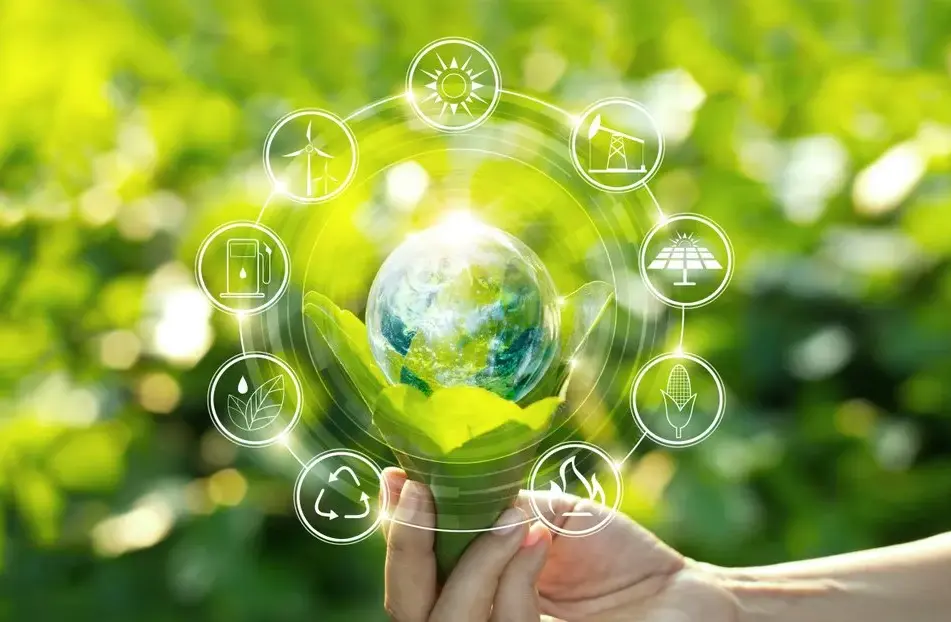
Along with these particular characteristics of the law, there are characteristics common to all social rights, which are equally applicable to them. Therefore, the human right to a safe, clean, healthy and sustainable environment must be accessible to all people without discrimination and under conditions of equality. The collective dimension of this right means that in its realization and protection, special attention must be given to groups and communities in vulnerable situations. Likewise, States are obliged to the progressive and immediate realization of social rights, ensuring minimum levels of enjoyment of rights. Where there is unequal access, or where the State fails to pursue progressive realization with the maximum available resources, or otherwise fails to meet its human rights obligations, people must be able to access justice to pursue their rights. rights and accountability.
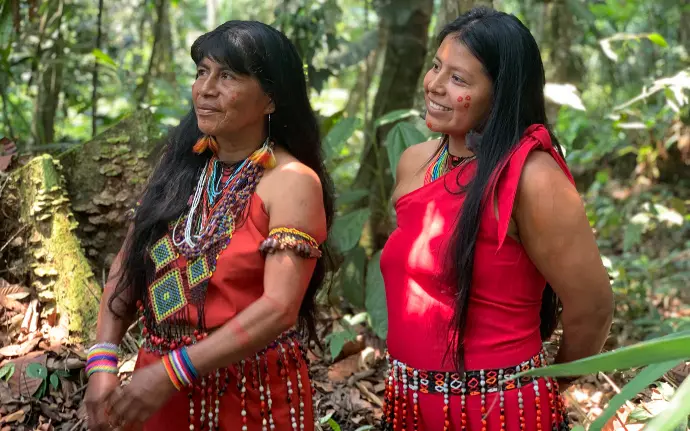
In relation to indigenous peoples, they have the same right to a risk-free, clean, healthy and sustainable environment, an essential condition for the enjoyment of the right to life and collective well-being. They must be informed, participate and give their consent in decisions or measures that may affect their environment, including information that ensures their effective participation in actions and policy decisions that may affect them. Likewise, they have the right to conserve, restore and protect their environment, and the productive capacity of their lands, territories and resources. In the case of lands and territories under potential or current claim by indigenous peoples, and lands subject to natural life reserve conditions, conservation areas should not be subject to development activities or exploitation of natural resources without their express informed consent and participation.
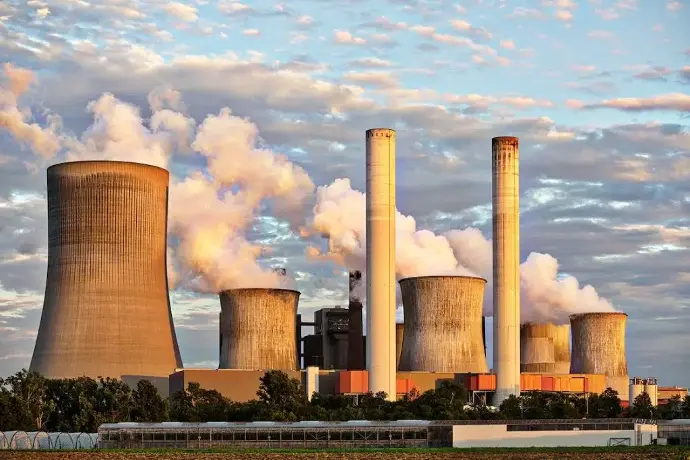
In relation to business activity, public and private companies, regardless of their size or location, are obliged to respect human rights and be accountable, as are States, both in relation to environmental degradation and climate change. The 2011 United Nations Guiding Principles on Business and Human Rights provide the authoritative global framework to prevent and address negative human rights impacts related to business. These principles recall the obligations of the State to protect human rights, of companies to respect them and for both, to remedy them in case of negative impacts. Furthermore, in the context of climate change and human rights, interference with the enjoyment of all human rights is evident, including the rights to life, housing, water and sanitation, food, health, development , security of the person and an adequate standard of living. Furthermore, the impacts of climate change exacerbate inequalities that disproportionately affect people who are already vulnerable, including children, indigenous peoples, people with disabilities and older people. Effective responses to prevent, mitigate and adapt to climate change must be anchored in international human and environmental rights standards and principles such as solidarity, cooperation, transparency, access to information, participation, equality, equity, accountability and who pollute pays and precautionary principles. States and companies must prevent harm to human rights, through ambitious climate action based on human rights, and make an urgent call to put justice at the center of climate action.
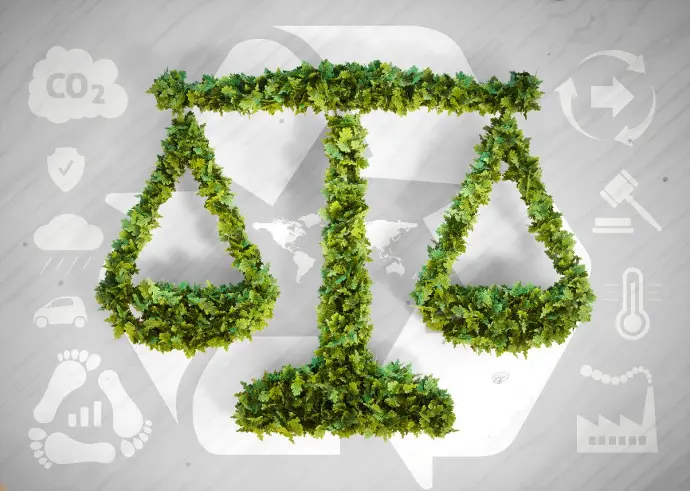

The UN declares that a clean, healthy and sustainable environment is a human right
The UN Human Rights Council declared this October that a clean, healthy and sustainable environment is a human right and invited all States to work together, in conjunction with other actors, to achieve this goal.
The UN resolution establishing this guarantee was approved with 43 votes in support and four abstentions: Russia, China, India and Japan. For their part, Costa Rica, Maldives, Morocco, Slovenia and Switzerland sponsored the text. The Council also established, in a separate resolution, a new rapporteurship specifically dedicated to the impact of climate change on human rights.
Following the adoption of the documents, Michelle Bachelet, United Nations High Commissioner for Human Rights, urged States to take measures so that the right to a healthy environment is a “rapid and real” change.
Bachelet hopes that this agreement “will serve as a springboard to promote transformative economic, social and environmental policies that protect people and nature.” Similarly, Bachelet stated that the right to a clean environment “has to do with the protection of people and the planet: the air we breathe, the water we drink, the food we eat.”
EXPLORE ENVIRONMENT SUBCASES
Click and view Environment subcases and learn more about our Environment Cause

 IHRO NEWS
IHRO NEWS
